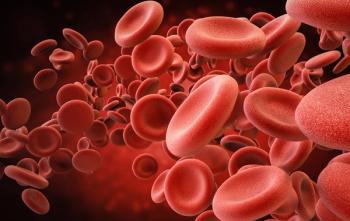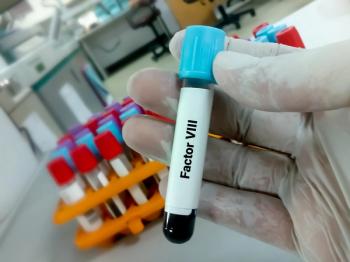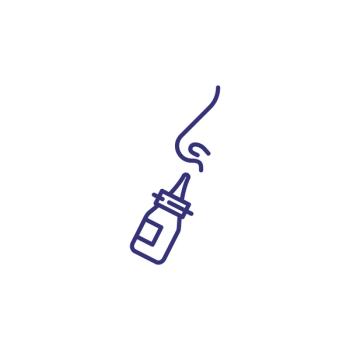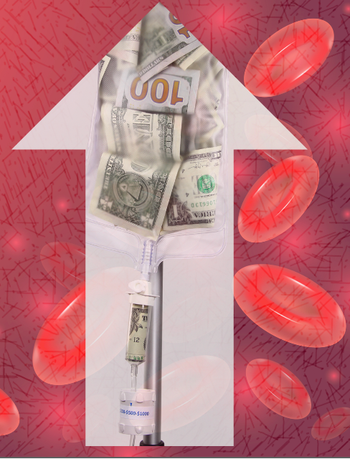
Hemophilia
Latest News
Latest Videos

CME Content
More News

Patients with hemophilia A face challenges with finding a lifestyle-appropriate therapy that considers self-infusion skills, management of breakthrough bleeds, and access to bleeding disorder centers.

Treatment initiation and management of comorbidities pose challenges for both pediatric and older adult patients with hemophilia A.

The challenges associated with treating hemophilia A become increasingly complex with varying disease severity.

Hematologist Jonathan Roberts, MD, discusses the history and challenges of hemophilia A treatment.

Specialty pharmacies prioritize minimizing drug waste in hemophilia A treatment, aiming for near-complete dosing while adhering to payer limits and addressing potential drug hoarding among patients.

Despite positive safety and quality of life results for FEIBA, the emergency of Hemlibra created difficulties for the FEIBA study and resulted in it being halted.

Joe Pugliese, president and CEO of the patient advocacy group Hemophilia Alliance, discusses recent announcements by manufacturers of two ultra-expensive gene therapies for hemophilia that they will offer payers partial or full reimbursement if patients fail on their therapies.


BioMarin Pharmaceutical and CSL Behring are offering valu\ed-based contracts for their hemophilia gene therapies.

The British cost-effectiveness agency said the evidence from a pivotal clinical trial wasn't strong enough to clarify Hemgenix's effectiveness relative to other therapies or satisfy concerns about its long-term durability.

University of Pittsburgh’s Margaret Ragni, M.D., M.P.H., discussed fitusiran, the investigational small interfering RNA (siRNA) therapeutic, with Managed Healthcare Executive and also some of the possible limitations of gene therapy for hemophilia.

A yearlong study of the newly approved half-life extender showed no evidence of factor VIII inhibitors.

Promising results were reported in The Lancet and The Lancet Haematology.

The price tag of $2.9 million is typical of a new wave of gene therapies. The manufacturer, BioMarin Pharmaceutical, is offering arrangements that will link the price paid by payers to how well patients respond to the treatment.

Hemophilia A is seen as a male-only disease, but this study shows the extent to which female carriers also suffer from bleeding and joint problems related to reduced levels of clotting factors VIII.

The researchers concluded that delayed prophylaxis start with intermediate dose intensity of factor VIII prevents bleeds, but at a cost of more joint damaged and reduced health-related quality of life.

FDA has announced evidence-based changes that will allow more individuals to donate blood without increasing the risk of HIV infection.

How long the gene therapies for hemophilia will keep factor levels high is unclear, said the authors of a review in the Annual Review of Medicine. Patients also need to be counseled that they can receive only one adeno-associated viral (AAV) vector in their lifetime.

Nonexclusive licensing of discoveries made at academic institutions would work to lower prices, say the writers of a recent opinion piece published in the New England Journal of Medicine. CMS price negotiation under the Inflation Reduction Act will not have any immediate effect on gene therapy prices and may never have.

CSL Behring's Hemgenix may have some competition. At least three gene therapies for hemophilia B are in development.

STAQ Pharma has stepped in to supply desmopressin nasal spray for people with hemophilia A or Type 1 von Willebrand disease. The company is also producing albuterol for children’s hospitals.

STAQ, a 503B outsourcing facility, started making desmopressin nasal spray after Ferring Pharmaceuticals suspended production nearly three years ago.


Hemgenix for hemophilia B is priced to cost $3.5 million per treatment. Roctavian for hemophilia A may be approved by the FDA in July and is likely to be priced to cost between $2 million and $3 million per treatment.

Patient groups say the insurer is cutting off access to important medications. The Tennessee Blues plan say many of the drugs that it excluded from coverage have zero utilization.




















